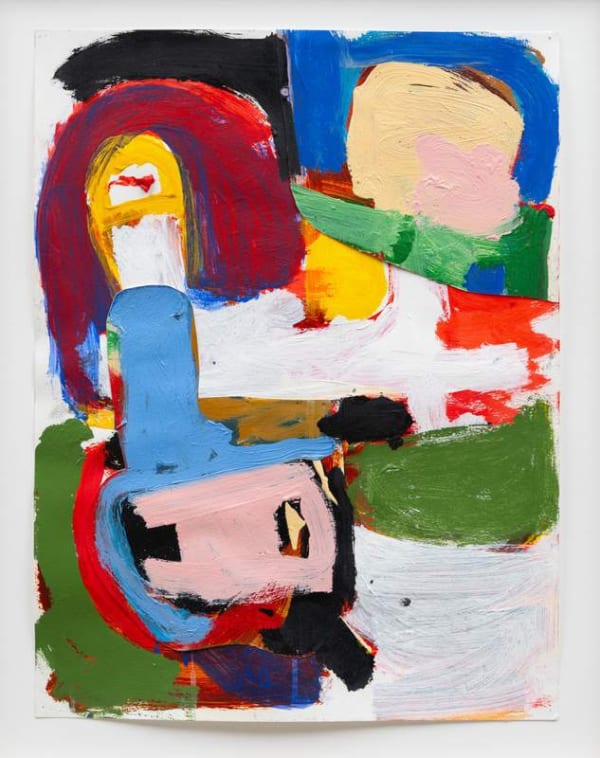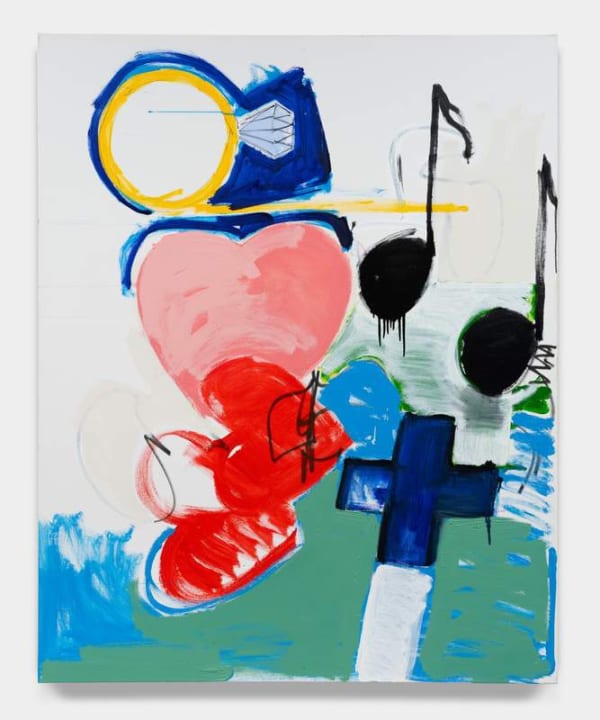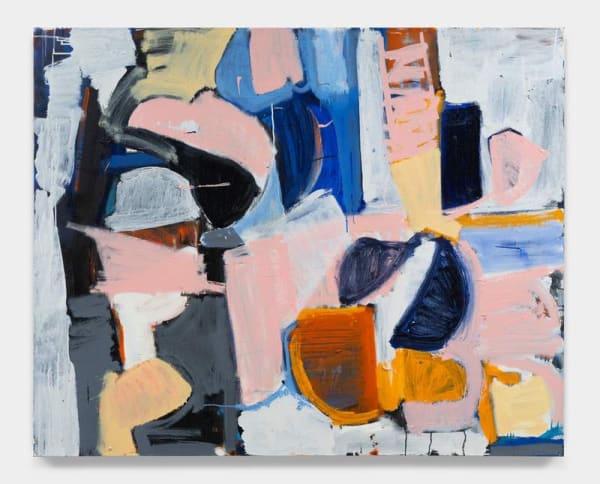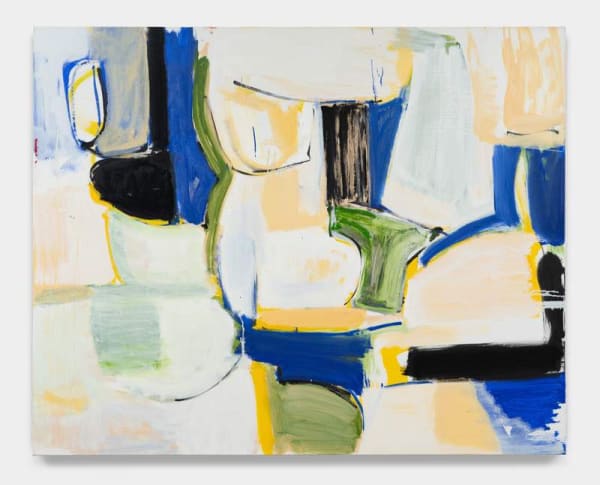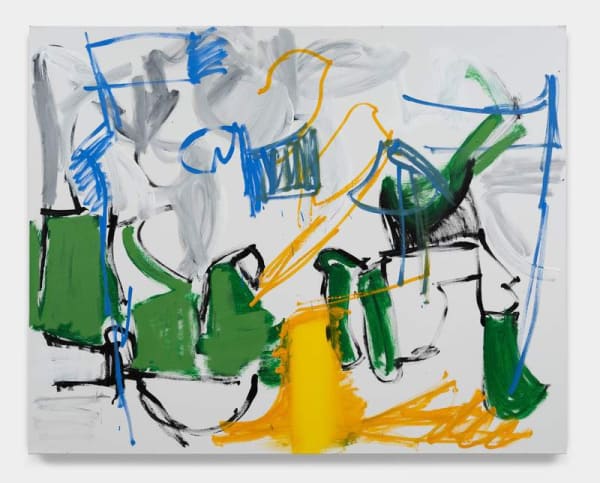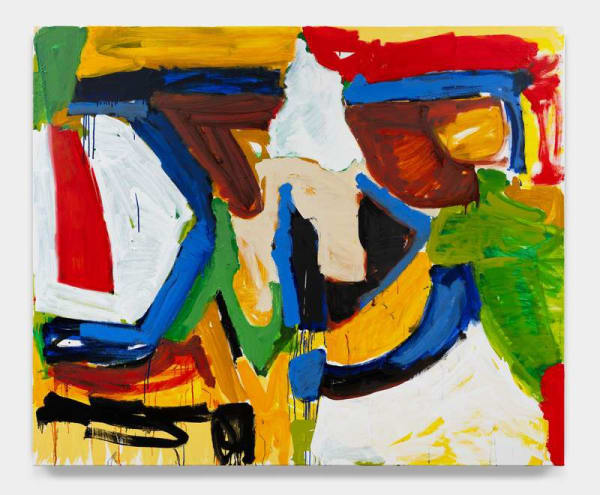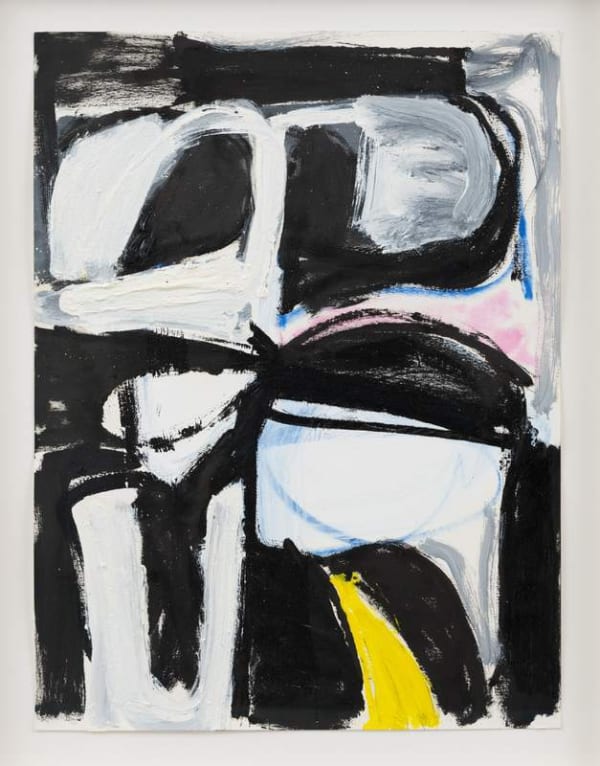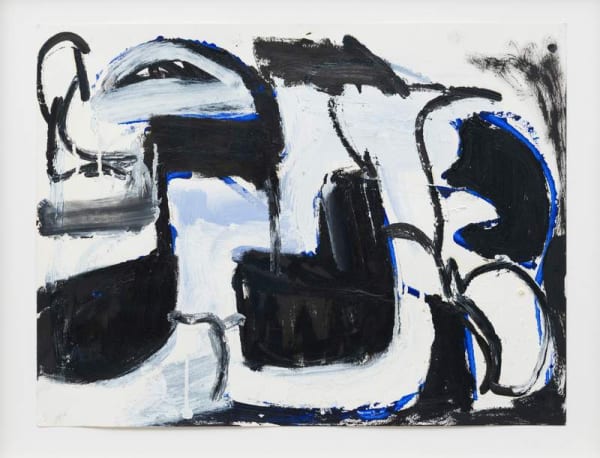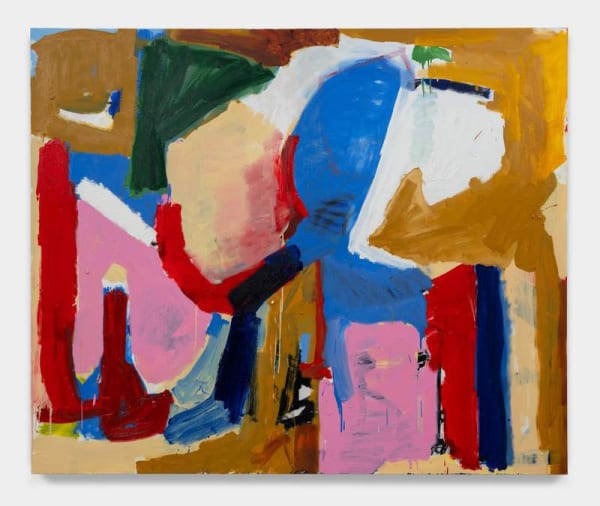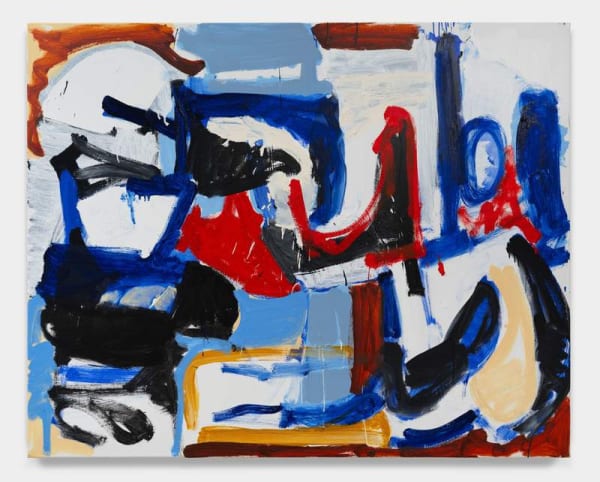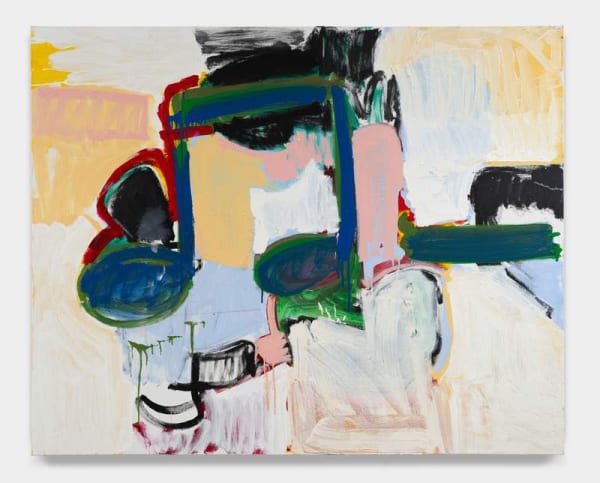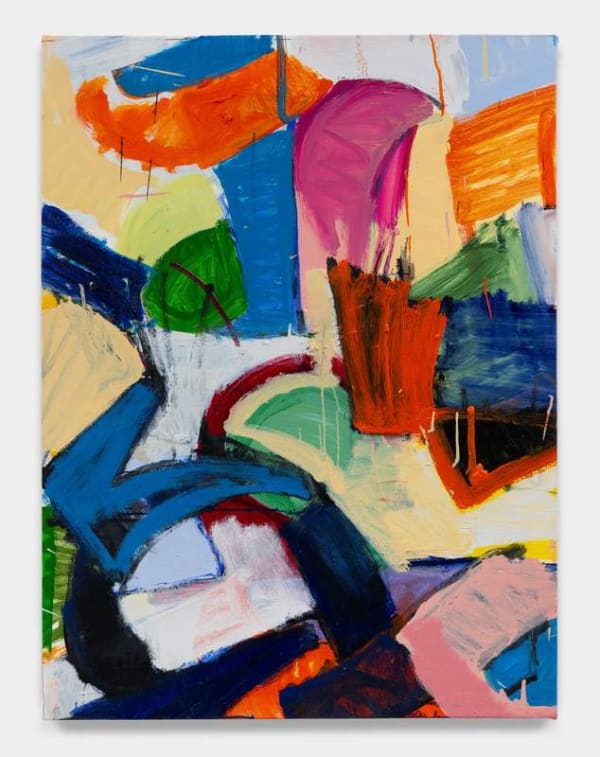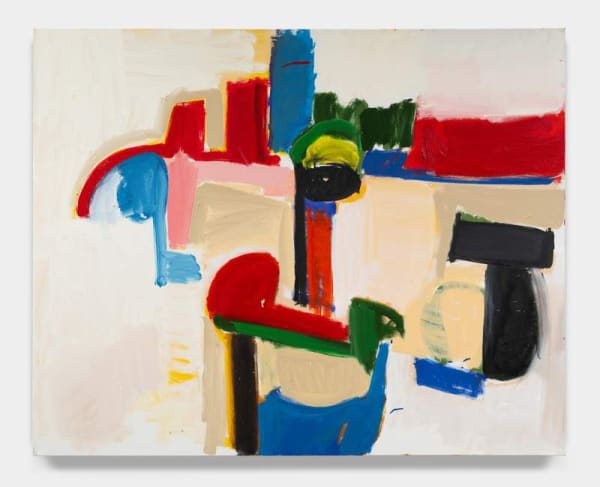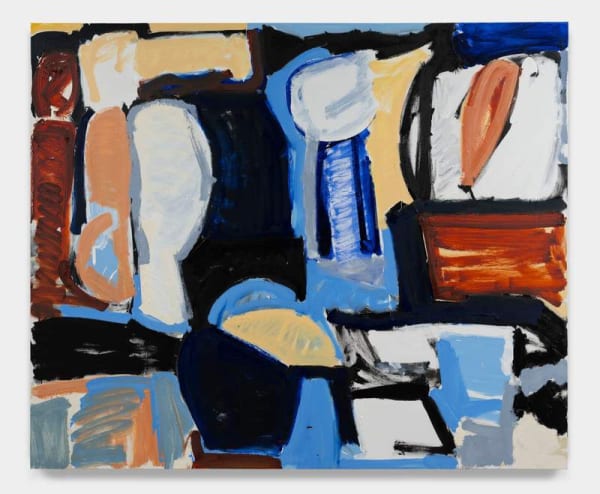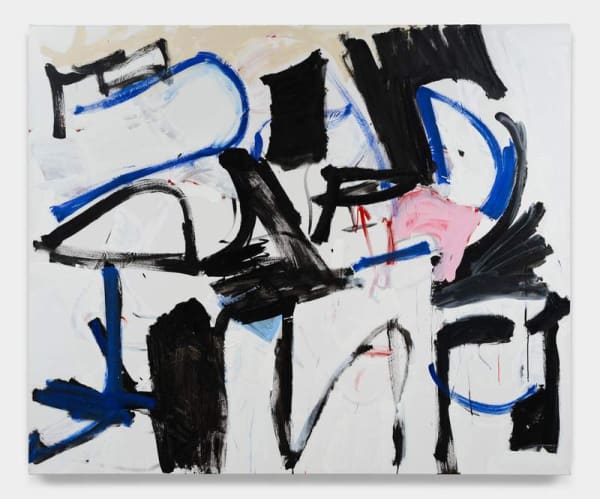Paintings of Drawings and Paintings: Justin Robinson
Hailing from New York, artist Justin Robinson has created a career translating
the act of remembrance into paintings that echo with an infectious sense of
nostalgia. Bright colors and amalgamated forms bridge time, culture, and
geography in a style that embraces the spontaneity and inherent chaos of
creation. This exhibition marks a shift in Robinson’s artistic trajectory. While
inevitably still guided by his intuition, these works take on a deliberate
approach that exhibits an increased sense of control and deliberate focus
previously left uncaptured. Here, as he converts the drawing and work that
represent his own experiences and emotions into more abstracted forms, we
see the emergence of a distinctly new Robinson aesthetic.
Each work is an act of rebellion against his own conception of the process.
Where he once used an excessive amount of different colors, shapes, textures,
and mark-making, he has created works that focus on simpler, more concise
palettes, conscious placement and use of line, and a slower approach to
allowing a composition to unfold. For the first time, he is working increasingly
on large-scale works, taking his time, and refusing to allow impulses to
dictate his movements. In this period of investigation, he has found ways to
incorporate a sense of rationality over being emotionally driven.
Where our senses were once overwhelmed by an explosive array of colors, he
has taken the time to procure a succinct palette. Typically only working with a
small handful of colors that complement one another, with the occasional
bold accent he hones and masters his ability to manipulate tone to tell his
stories. Works like “Untitled Painting III” show a mastery of control as he
forms a painted patchwork across the canvas. Through the formations of
color, he allows the push and pull of his minimalist palette to build emotive
tension. As they collide and fuse together, we begin to recognize forms and
shapes that add to his storytelling, drawing us deeper and deeper into his
memories.
For the first time, we see his approach to layering incorporating lighter tones,
such as peppermints and his signature Naples yellow. “The Bar at the
Mayfair” incorporates this new conceptualization of tone and layering. Blue
and black crash against the greens and yellows creating a controlled
cacophony that transports us from corner to corner with an improvisational
sense of movement. The negative space of the canvas takes on a more active
role, allowing his lines and geometries to become more pronounced. Through
this approach, he allows these color families to reveal more subtle nuances,
often overshadowed in his paintings.
These layers do not take on the presumed haphazard energy seen in his
previous works. While spread out across these monumentally sized paintings,
his increased use of paint and lines appear more compact. He rejects the
unnecessary, only leaving the marks, patterns, and colors that best convey his
recollections and memories. Much like the movies he draws inspiration from,
with classic movies like the Woody Allen films depicting a classic sense of
New York through to contemporary films like the recent Poor Things that
dismantle our realities, he ensures that every minor detail and component are
thoroughly thought-through to create a cohesive experience devoid of
convoluted imagery and evocations. When peering into works like “Simple”
where each color was meticulously placed to build a sense of space and tone,
we understand that Robinson is building worlds rather than simply painting
them. They are an exercise in patience and balance that has allowed him the
freedom to develop an artistic philosophy that embraces an analytical
approach over one that allows ambiguity to seep into his process.
Enveloped in these works, we witness as Justin Robinson develop his
personal artistic calligraphy. A visual language is taking the form that will
become synonymous with his name and style. Just as we witness the
combination of bold juxtapositions of colors, personalized iconography, and
energetic brushstrokes in works like “Just You, Just Me (Everyone Says I Love
You, 1996)” he elevates abstraction from the surreal into something
recognizable, meaningful, and impactful. He asks us to slow down, focus, and
examine as his uncanny ability to harness nostalgia unfolds before us.

